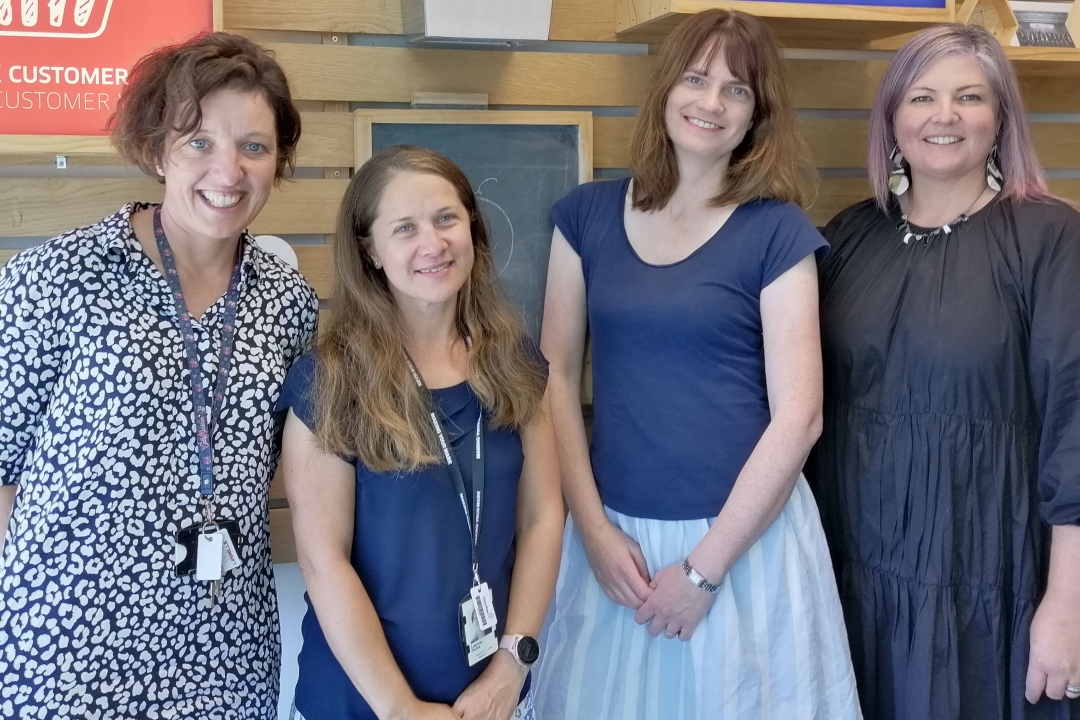Can you give us an overview of the legal team at Paymark and how you support the work of the business?
The legal team at Paymark is made up of four people Leanne Davies, Louise Rooney, Julia Nicol and myself. Julia and I are full time and Leanne and Louise work part-time. None of us started our careers thinking we’d be payments lawyers but it really has taken us all by surprise and we’ve all been at Paymark for sometime now. Collectively we have a range of different experience prior to Paymark including private practice and in-house roles both in NZ and overseas. Our prior experience has been broad and includes Treaty of Waitangi settlements, mergers and acquisitions, pharmaceuticals, technical writing and property. We enjoy the variety of work and the issues we get to deal with at Paymark.
We work flexibly between home and the office but as a team have agreed to have one day a week when we are all physically located in our Victoria Street office. Post Covid we use Microsoft Teams/Planner a lot to manage work and keep connected. As a business we have tried hard to find the sweet spot of flexibility and that requires us all to consider the following:
What works for the customer;
What works for the business;
What works for the legal team;
What works for the individual.
What have been your most recent challenges as General Counsel and how did you address these?
Paymark is part of the global Worldline group so the team has a dotted reporting line through to Singapore. The legal team in NZ is responsible for all legal matters in the Pacific so the Australian Worldline businesses also use the NZ legal team for support. That’s different from a lot of globals who have lawyers in Australia but none in NZ.
Being acquired by Ingenico in 2019 and then with Ingenico being recently acquired by Worldline has provided some challenges for us. We’ve spent time getting to know our international colleagues and processes and are still learning how to get things signed off and approved!
The General Counsel function sits with the Executive Leadership Team which is the optimal model in our view. How does this overview and responsibility enhance the role of the legal team?
I sit on the NZ and Australian leadership team and this means that we have a voice and the legal team gets visibility early on strategic matters, key initiatives and where the business is heading.
I don’t think that a lawyer should automatically get a seat on the leadership team and to be part of that team is a privilege but you need to contribute more than just legal advice. You need to be able to communicate well and broadly within the business, understand and share the vision and the strategy widely, take on other opportunities that might not be seen as “core legal”, solve problems and look for opportunities for the business.
What do you do to prioritise the work of the legal team towards high value/high risk work and out of lower work?
In terms of prioritising, the businesses that we support are very clear on what their priorities are for the year ahead so the legal team tends to be able to priortise based on those. This isn’t to say we don’t from time to time have tension but we always seem to find a way to meet the business needs. What tends to slip in busy times is working on things that are, in the long term, going to make the legal team operate more efficiently.
Are there any changes or new technologies you planning to roll out in the next 12 months?
For now we’re happy with the tools and contract management systems we have in place. We have a great contract management database (Contract Eagle – a great NZ solution, support local!) and make use of our Legal page on our corporate intranet to enable the business to access editable PDFs of NDAs and contract approval forms.
We don’t find ourselves doing a huge amount of repeatable work so when we have looked at some AI tools/contract review tools, we haven’t found the tech to be compelling enough for us to get on board. Legal tech will continue to improve so over time we might get there but for us in our industry right now we’re ok with what we’ve got.
